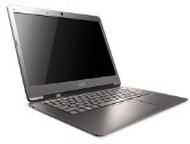 [German]It looks like the last few days devices from Acer, Lenovo etc. with Windows suddenly refuse to boot with "no bootable device". The cause is not quite clear yet – it could have been a Windows update. Furthermore, it seems that a BIOS update may have reset some settings. Therefore, I would like to ask if anyone else has made the same observations and can say something about the cause.
[German]It looks like the last few days devices from Acer, Lenovo etc. with Windows suddenly refuse to boot with "no bootable device". The cause is not quite clear yet – it could have been a Windows update. Furthermore, it seems that a BIOS update may have reset some settings. Therefore, I would like to ask if anyone else has made the same observations and can say something about the cause.
A user Facebook post
I came across a post from a service provider in a Facebook group about the problem. The person in question writes that yesterday, October 26, 2021, he received feedback from three customers at once that 18 Acer devices failed within a week with the message no bootable device and refused to boot. Here is the German language Facebook post:

There was a suspicion that a Microsoft update was the cause of the boot drive no longer being found. When going through the comments of other administrators, this was confirmed by various people.
Had this on one of 85 PCs after various MS updates. Am still tracking down which one it was ….
Or in another post the thread starter says:
with one customer threr really 16 of 16 of Surface Go 1 has been affected. I myself also doubt whether that is exactly true as the customer tells …
Of course, this is not the a big amount of devices. But since several devices were affected, it can not really be a hardware defect, because I would have expected a device as an isolated case. But also on Twitter I have found some hits on the problem during a short search in the last few weeks.
On Facebook, someone also came up with an HP device where the error occurred. But in this case it was really a defective hard drive that caused the error.
Could it have been a BIOS update?
In the past, Microsoft has often distributed BIOS updates directly to devices via Windows Update. Therefore, the suspicion arose that a BIOS update had changed the settings. One affected person then also wrote specifically in the relevant thread:
Mine too. Acer and Lenovo notebooks. Was a rolled out BIOS update which had reset the BIOS.
Means for me as interpretation that the BIOS update was distributed concretely by Microsoft. Can anyone of you confirm this error pattern and the assumptions?
German blog reader Friedel S. contacted my via email and has send me the following comment regarding the question, that BIOS updates are shipped via Windows Update.
What does the operating system manufacturer have to look for / manipulate in the BIOSes (very often very strongly tailored to the individual models of (e.g. notebooks)? And to simply play this in as an OS update? In the comments, this has not been addressed at all – has such a procedure become "normal" in the meantime? Or do I have a fundamental failure in understanding?
I can just can say, that it is known that firmware updates are also installed on Surface devices. I found this support article from Lenovo:
BIOS is updated automatically by Windows update – ThinkPad
Symptom: The user may notice that the system BIOS is automatically updated to the latest version after Windows update.
Applicable brands: ThinkPad
Operating systems: Windows 10 32-Bit / 64-Bit
At Windows Report, I found the article Beware: Windows update is pushing BIOS updates with bugs dated July 30, 2021, which addresses similar issues for Lenovo. And in the Microsoft Answers forum I found this thread (from 2020) and this thread (from 2019) on the topic.
Adjust BIOS settings
If you search for the keywords, you often come across "Acer + no bootable device". In the Acer community, there is this KB article that suggests putting the system into BIOS mode via the F2 function key at startup. Afterwards, the BIOS should be reset to the default configuration.
There are various articles and videos on the Internet, such as this one, which suggest switching from UEFI to legacy boot in the BIOS will fix the issue. However, there is a risk that Windows 10 can no longer be booted correctly because the UEFI boot is not used. Windows 10 is able to boot from BIOS and UEFI, but if the OS disk is GPT partitioned, it's not able to boot from a legacy BIOS, as far as I know. So resetting the BIOS might be the better way.





I had the same issue, and i found a solution, maybe its the same problem;
After bios update the bios was set to have an intel optane device, which resulted in
the message 'no bootable device'.
The solution i found was to go into bios, and CTRL+S in the main tab for the option to appear to switch the optane device to a standard drive.
Exit and save from bios.